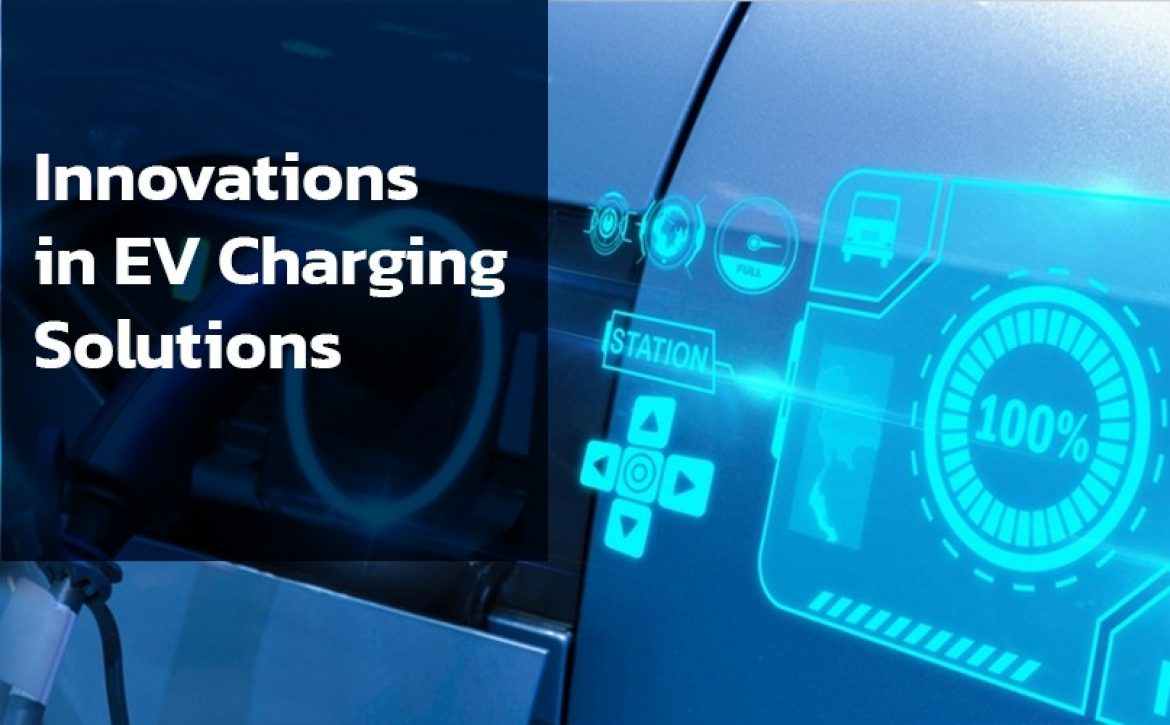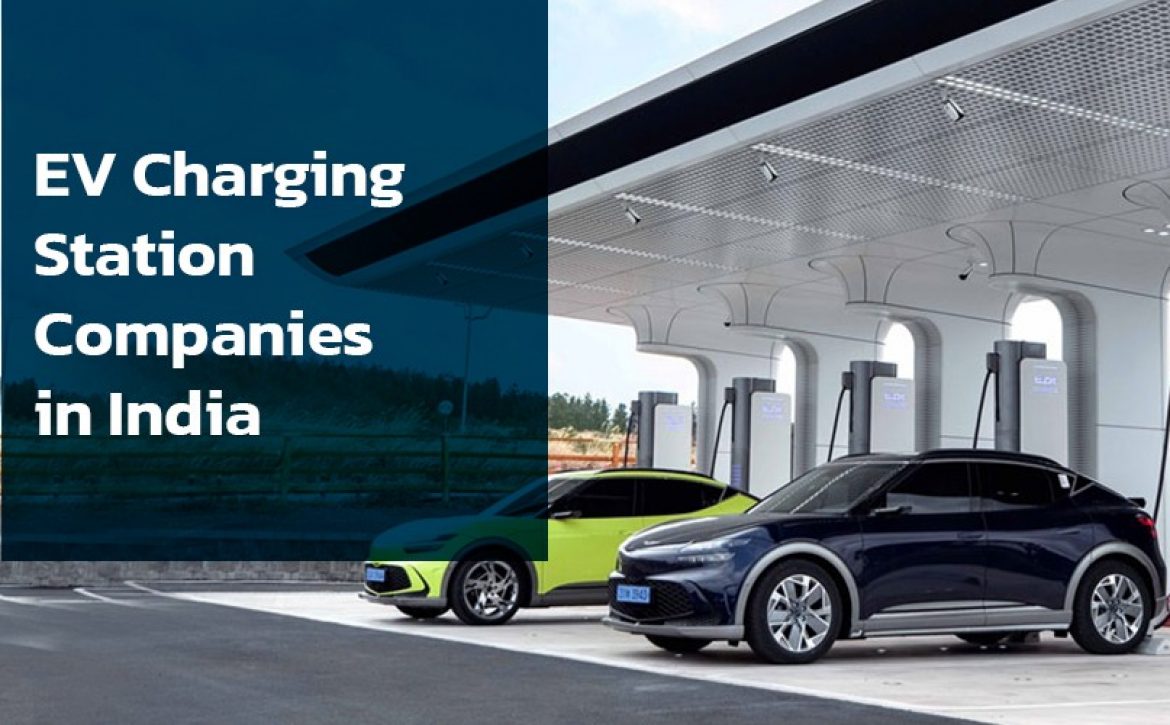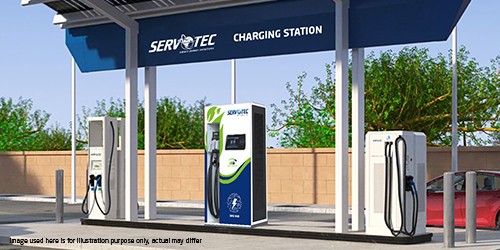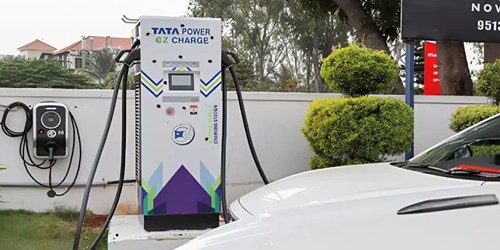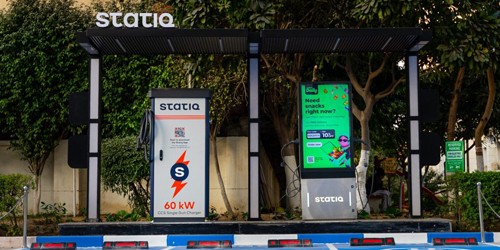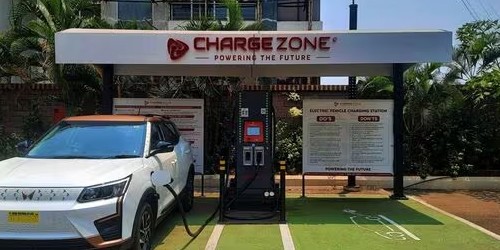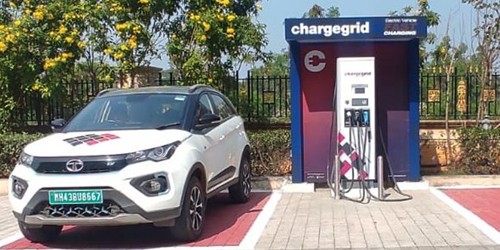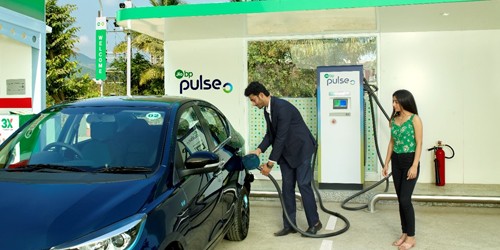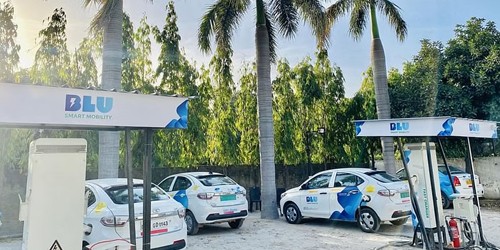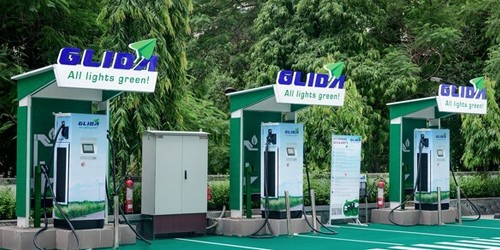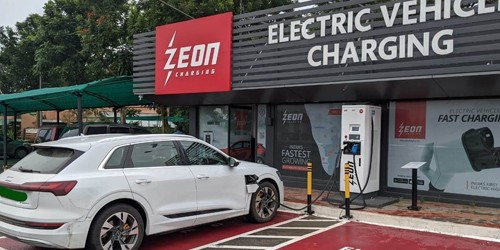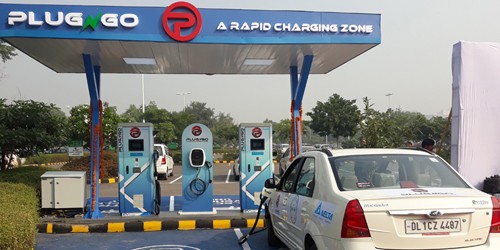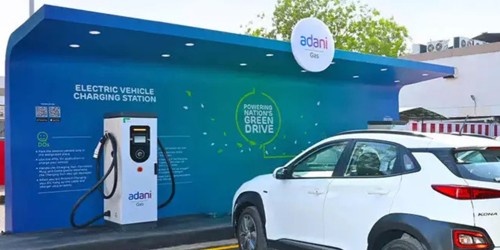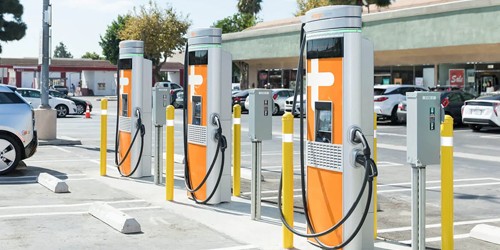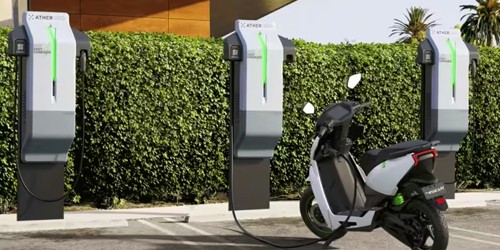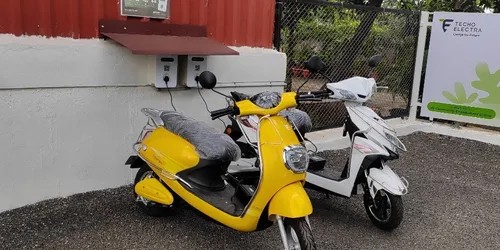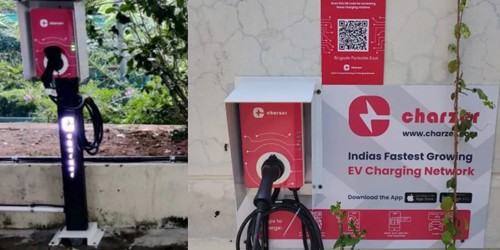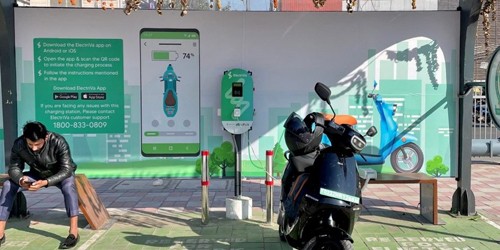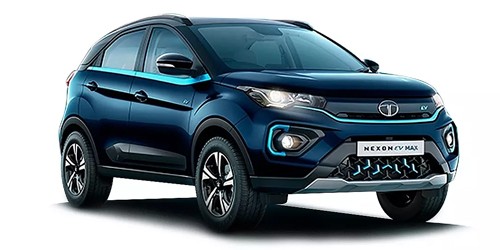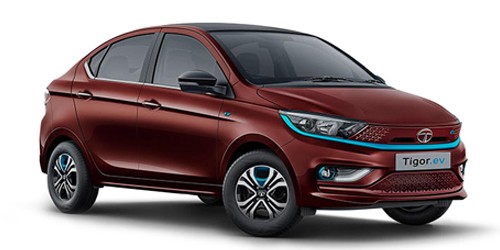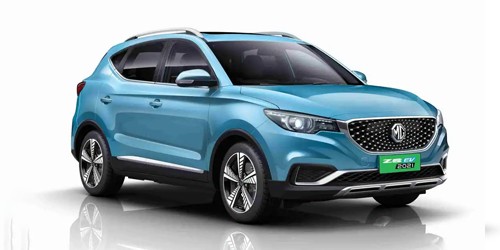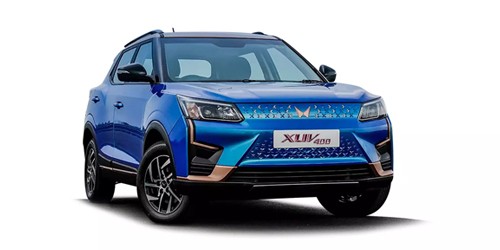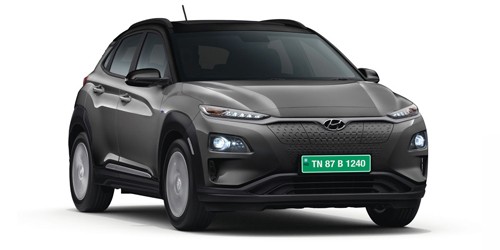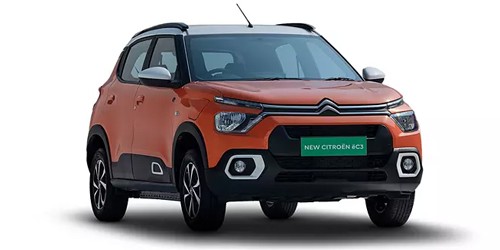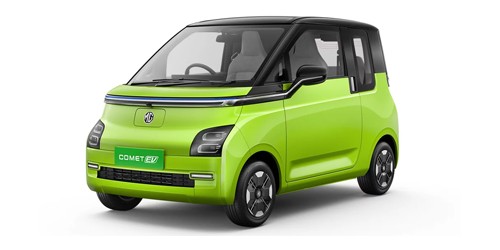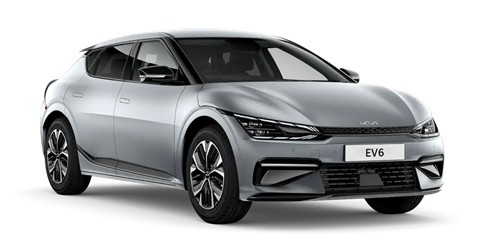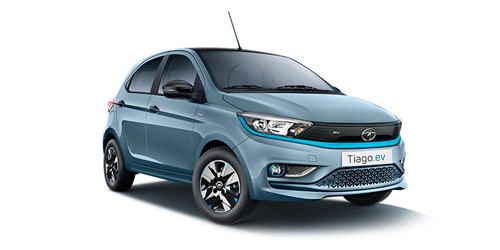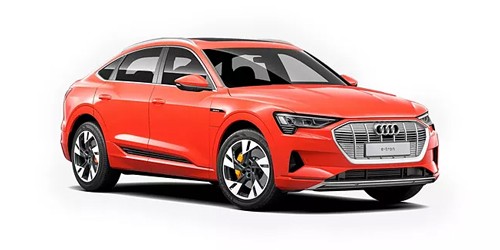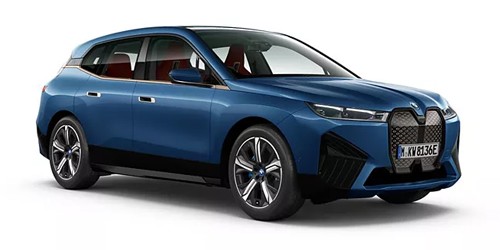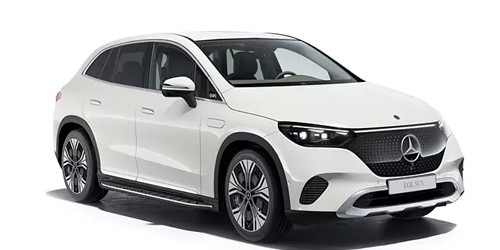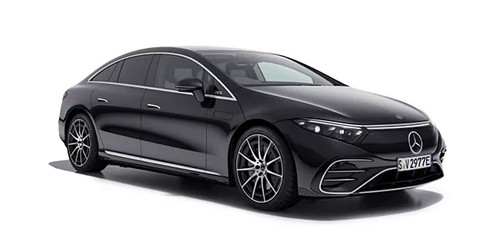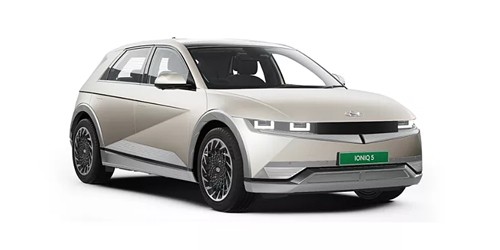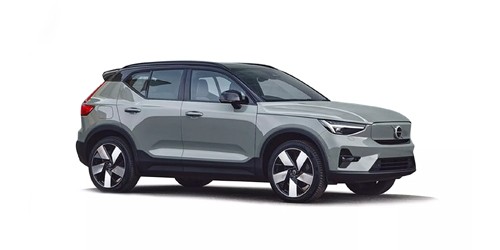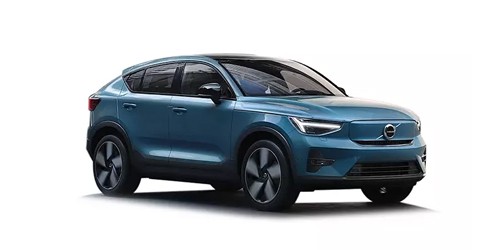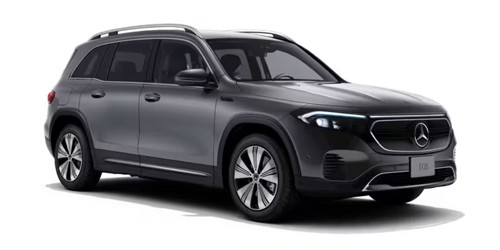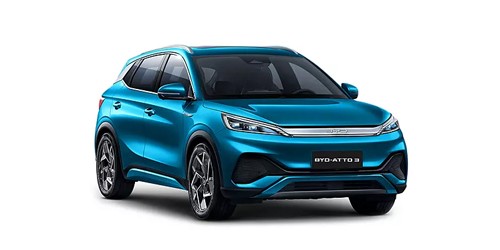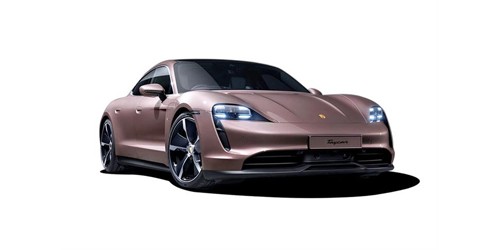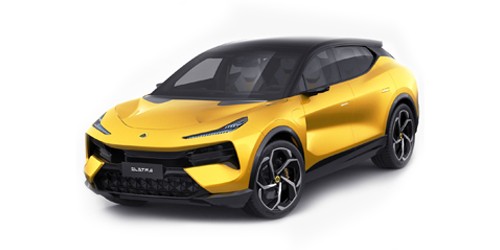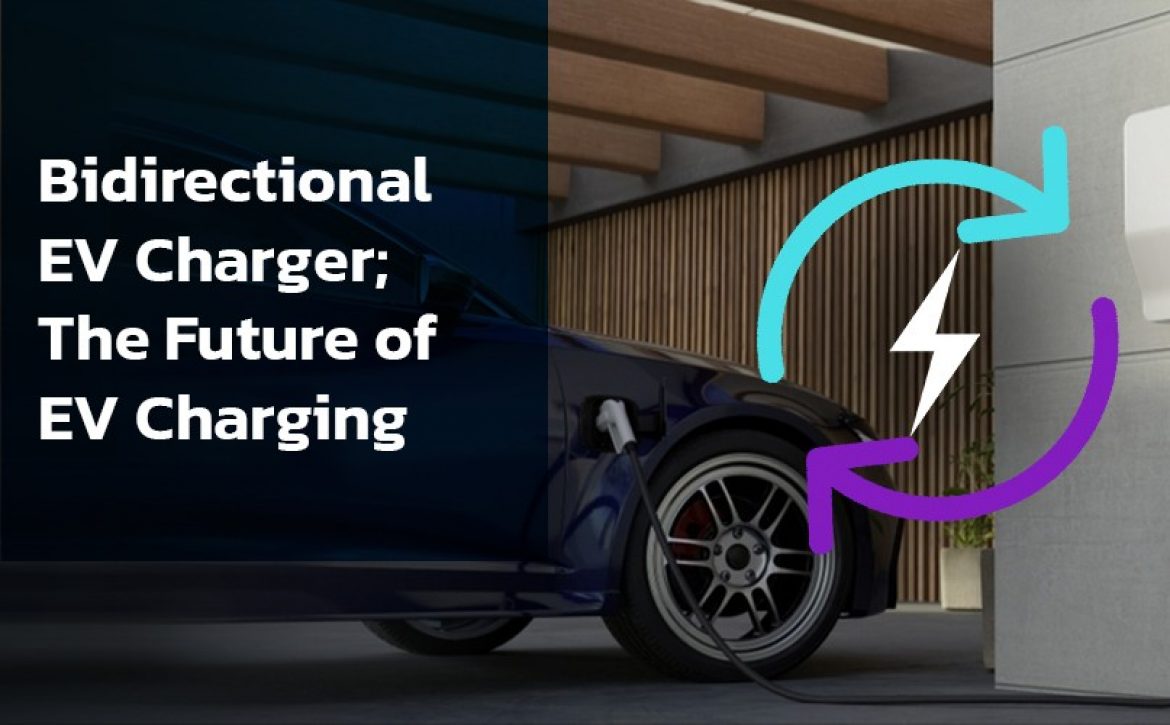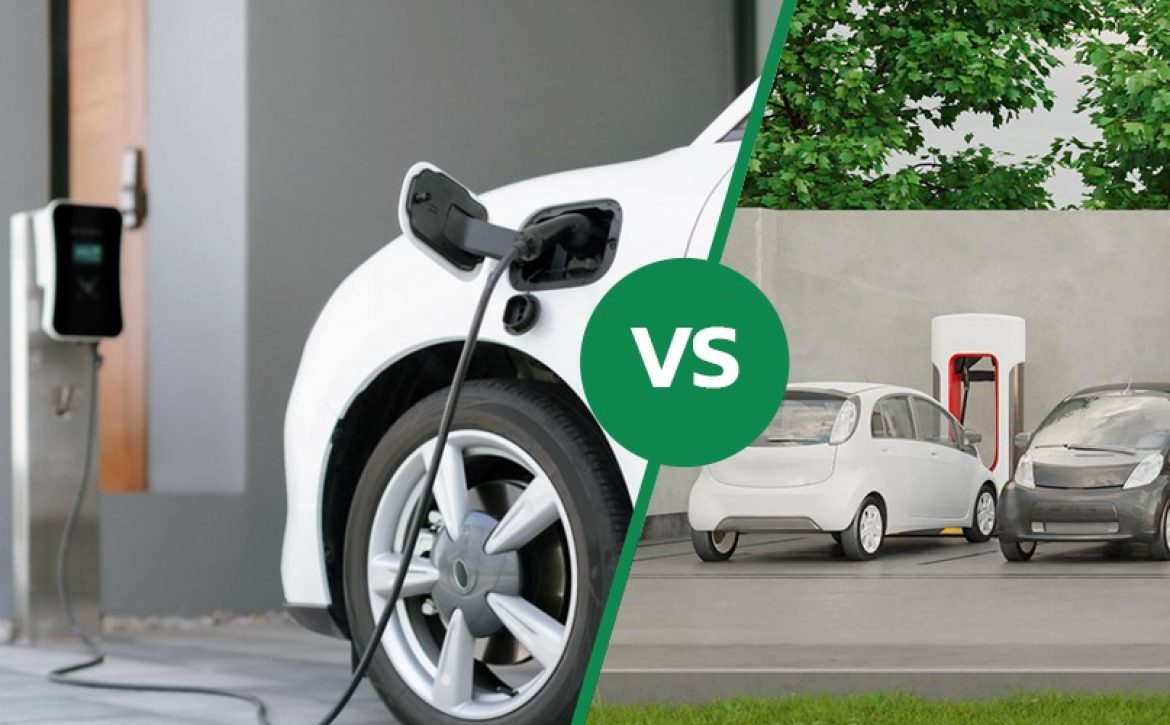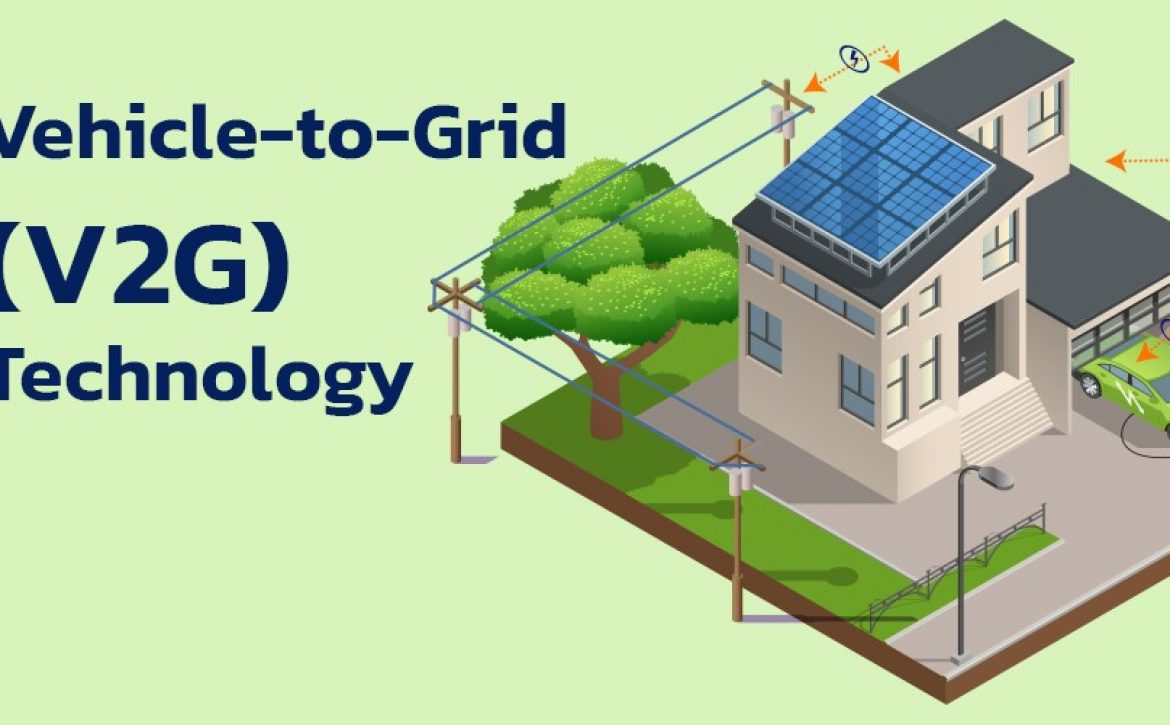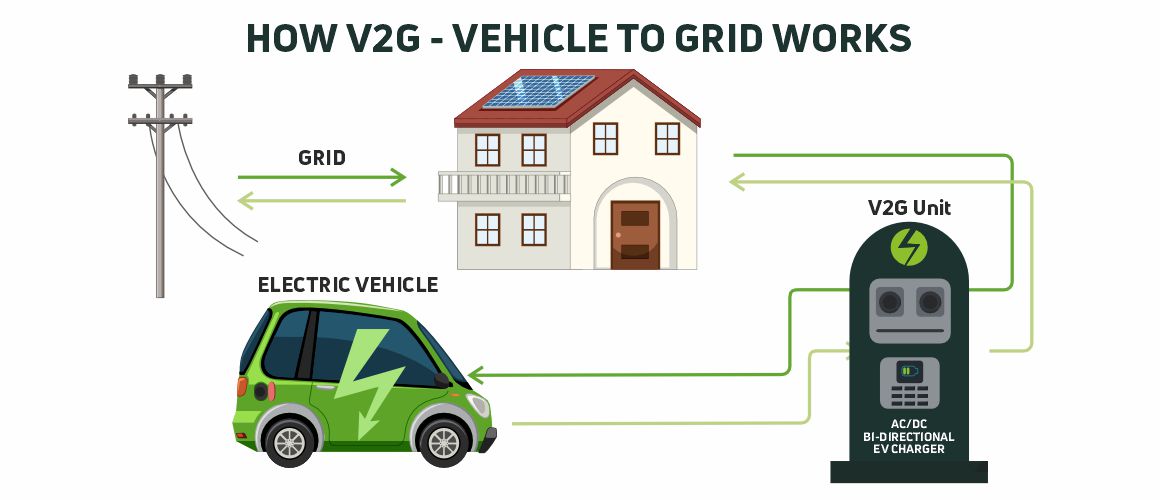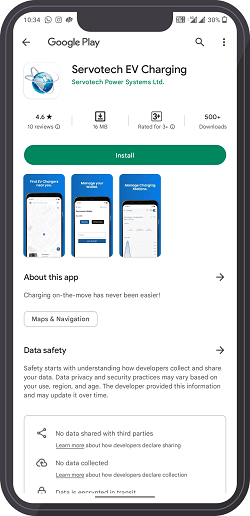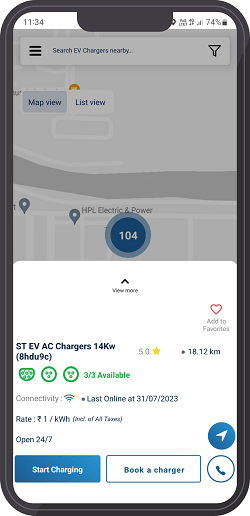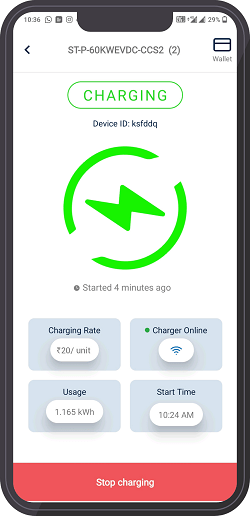Top Upcoming Electric Cars in India 2024
In the rapidly evolving landscape of the Indian automotive industry, the electric vehicle (EV) segment is poised for a transformative year in 2024. As the nation aligns with global sustainability goals, automakers are gearing up to introduce cutting-edge electric cars that promise to redefine the driving experience. Let’s take a sneak peek into the future and explore some of the most anticipated electric vehicles set to hit Indian roads in 2024.
List of Top Upcoming Electric Cars in India 2024
Here is the list of top upcoming electric cars in India in 2024 with their specifications, prices, battery packs, KM range, charging time, etc. Check out the upcoming EV cars in India:
1. Tata Punch EV
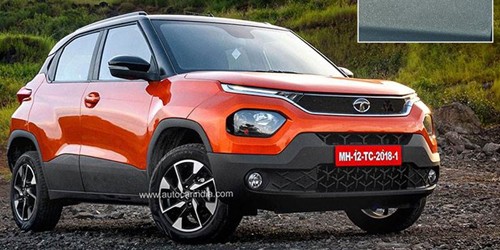
The Tata Punch EV emerges as an electrifying iteration of Tata Motors’ robust and compact SUV, ushering in a new era of sustainable and efficient urban mobility. Building upon the success of its gasoline-powered counterpart, the Punch EV represents Tata’s dedication to electric innovation in the SUV segment. With its distinctive design, agile performance, and eco-friendly electric powertrain, this electric variant promises a seamless fusion of urban practicality and emission-free driving. Poised to make a significant impact in the electric SUV market, the Tata Punch EV embodies Tata Motors’ commitment to delivering a compelling and eco-conscious driving experience tailored for modern urban adventures
Expected Price- ₹ 12 Lakhs
Expected Launch – January 2024
Range– 280 km
Top Speed– 85 km/h
2. Tata Harrier EV
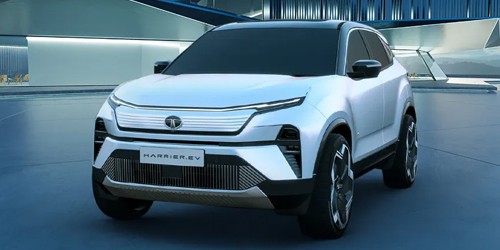
The Tata Harrier EV marks a significant stride in Tata Motors’ commitment to sustainable and electrified transportation. Building upon the success of its gasoline-powered counterpart, the Harrier EV represents Tata’s entry into the electric SUV segment, offering a seamless fusion of bold design, advanced technology, and eco-conscious engineering. With its commanding presence and an electric powertrain designed for both efficiency and performance, the Harrier EV promises a dynamic and environmentally friendly driving experience. Tata Motors, a pioneer in the Indian automotive market, ventures into the electric realm with the Harrier EV, aiming to provide consumers with a compelling and eco-conscious choice in the evolving landscape of electric SUVs.
Expected Price– ₹ 22- 25 lakhs
Launch Date– June 2024
Range- 500 km
Top Speed– 195 km/h
3. Hyundai Creta EV

The Hyundai Creta EV marks an electrifying leap for the popular SUV, redefining the acclaimed Creta lineup with an eco-conscious edge. As Hyundai ventures into the electric SUV market, the Creta EV encapsulates the beloved attributes of its predecessor while embracing sustainable mobility. With its sleek design, advanced electric drivetrain, and commitment to emission-free driving, this electric variant promises a harmonious blend of versatility, style, and eco-friendly performance. As Hyundai’s dedication to electric innovation continues, the Creta EV is poised to offer a compelling option for SUV enthusiasts seeking an electrifying driving experience coupled with the practicality and appeal of the acclaimed Creta model.
Expected Price- ₹ 23 – 25 lakhs
Launch Date– Late 2024
Range- 452 km
Top Speed- 195 km/h
4. Ola Electric Sedan
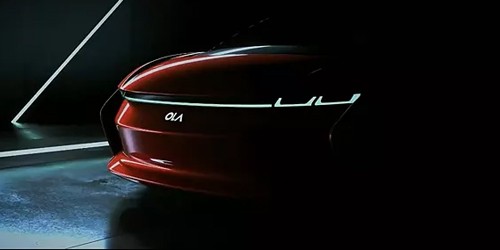
The Ola Electric Sedan emerges as a revolutionary step in Ola’s commitment to sustainable transportation, promising an innovative and eco-friendly addition to the EV market. With a focus on blending cutting-edge technology and stylish design, the Ola Electric Sedan embodies Ola’s vision of urban mobility. Sporting a sleek and futuristic exterior, this sedan integrates advanced features and electric propulsion, aiming to redefine the concept of efficient and environmentally conscious driving. Anticipated to offer impressive range capabilities, state-of-the-art connectivity, and a seamless electric driving experience, Ola’s entry into the electric sedan segment signals a shift toward sustainable urban transportation solutions, potentially setting new benchmarks for innovation and performance in the electric vehicle domain.
Expected Price– ₹15 – 25 Lakhs
Launch Date– January 2024
Range– 500 km
Top Speed– 150-160 km/h
5. BYD Seal

The BYD Seal signifies a landmark stride in the electric vehicle market, representing BYD’s prowess in delivering cutting-edge electric mobility solutions. As an innovative electric sedan, the BYD Seal embodies the brand’s commitment to sustainable transportation and technological advancement. Boasting a distinctive design language and a suite of advanced features, this electric sedan is poised to redefine the standards of efficiency, performance, and eco-consciousness. With impressive range capabilities, rapid charging options, and customizable powertrains, the Seal offers versatility, efficiency, and a glimpse into the future of electric sedan driving. BYD’s dedication to electrification and its innovative approach to crafting environmentally friendly vehicles is vividly reflected in the Seal, marking it as a significant addition to the landscape of electric automobiles.
Expected Price- ₹ 70 Lakhs
Launch Date– February 2024
Range– 700 km
Top Speed- 200 km/h
6. Fiskar Ocean
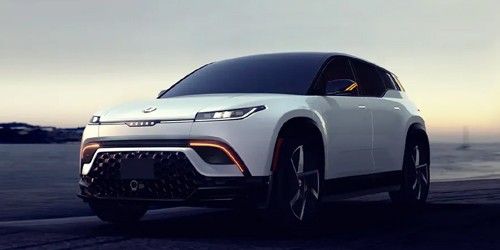
The Fisker Ocean heralds a new era of sustainable luxury in the realm of electric vehicles, embodying Fisker Inc.’s commitment to innovative design, environmental responsibility, and forward-thinking mobility. As an all-electric SUV, the Fisker Ocean captivates with its sleek, modern aesthetics and eco-friendly features. With an emphasis on sustainability, this electric vehicle is designed to minimize its environmental impact, featuring recycled materials, solar roof options, and a focus on renewable energy sources. Fisker’s pledge to deliver a premium electric vehicle experience without compromising on style, performance, or environmental consciousness is showcased vividly in the Ocean, positioning it as a promising contender in the landscape of eco-conscious automobiles.
Expected Price- ₹ 80 Lakhs
Launch Date- February 2024
Range– 402 – 579 km
Top Speed- 127 km/h
Read also: Top Electric Cars in India 2024
7. Tata Curvv EV
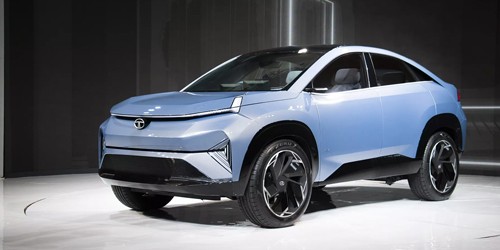
Tata Motors has emerged as a frontrunner in India’s electric vehicle revolution, showcasing a diverse range of electric cars that epitomize innovation, reliability, and eco-consciousness. From the compact yet robust Tigor EV to the stylish and versatile Nexon EV, Tata Motors has established a strong foothold in the electric vehicle market and their upcoming electric car Tata Curvv EV is no exception. This electric car boasts efficient drivetrains, impressive range capabilities, and a commitment to zero-emission driving, aligning with Tata’s vision of sustainable mobility for all. Tata’s strategic focus on affordability and technological advancements has positioned its electric vehicles as accessible and practical options, contributing significantly to the evolution of electric mobility in India and signaling a promising future for eco-friendly transportation solutions.
Expected Price– ₹ 15 – 20 Lakhs
Launch Date– April 2024
Range- 400-500 km (approx)
Top Speed– 160 km/h (approx)
8. Vayve Mobility EVA
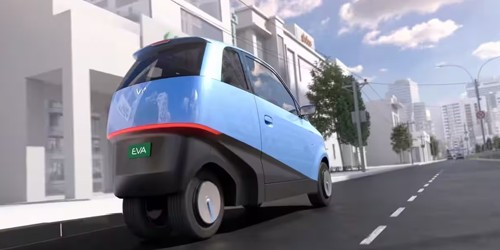
Vayve Mobility, a Pune-based automotive startup, introduced the prototype of ‘Eva,’ touted as India’s first solar-powered electric vehicle, at Auto Expo 2023 in Greater Noida. Eva, a two-seater, climate-controlled car with space for two adults and a child, is designed for ease of maneuverability and parking. Equipped with Android Auto/Apple CarPlay compatibility, a 6-way adjustable driver seat, and a panoramic sunroof, it features solar panels on the roof for additional charging alongside a 14 kWh battery pack. The vehicle is propelled by a 6kW liquid-cooled PMSM electric motor, offering a 250 km range on a single charge. With a Monocoque chassis, IP68-certified powertrain, and safety features like a driver airbag, the company plans to launch Eva in 2024. Charging options include a 4-hour standard house socket charge and an 80 percent charge in 45 minutes on CCS2.
Expected Price– ₹ 7 lakhs
Launch Date– March 2024
Range- 250 km
Top Speed- 0-40 km/h in 5 sec
9. Mahindra XUV.e8
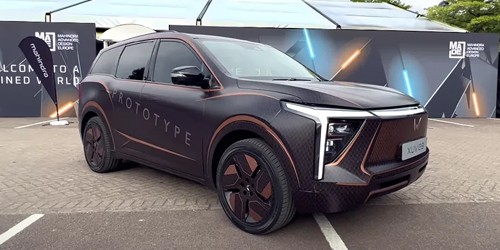
Mahindra Electric’s commitment to sustainable mobility shines through its lineup of electric vehicles, heralding a new era of eco-conscious transportation in India. With upcoming models like the XUV.e8, Mahindra is all set to make significant strides in offering accessible and practical electric solutions to the Indian market. This vehicle will not only emphasize efficiency and zero-emission driving but also carry the essence of Mahindra’s legacy of ruggedness and reliability. Mahindra Electric’s dedication to innovation and affordability is evident in its EVs, catering to the growing demand for environmentally friendly vehicles in India’s evolving automotive landscape. Positioned as a driving force in the country’s electric mobility revolution, Mahindra Electric continues to pave the way for accessible and sustainable transportation solutions for the masses.
Expected Price– ₹ 21-30 Lakhs
Launch Date- December 2024
Range– 450 km
Top Speed– 200 km/h
10. BMW i5M60
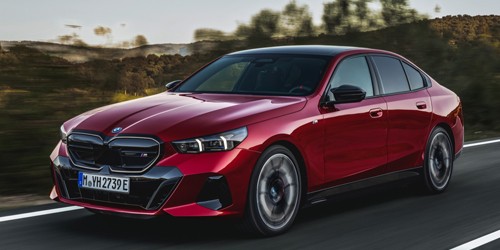
BMW’s venture into electric cars marks a bold and transformative shift for the prestigious automaker, epitomizing the convergence of luxury, performance, and sustainable mobility. Embracing an electrified future, BMW’s electric vehicles (EVs) represent a fusion of the brand’s celebrated engineering prowess with cutting-edge electric technology. The upcoming model i5M60 exemplifies this commitment, offering a sleek design, impressive electric range, and BMW’s hallmark driving dynamics. BMW’s EV lineup showcases the brand’s dedication to innovation, evident in advancements like intelligent electric drivetrains, state-of-the-art infotainment, and a meticulous focus on eco-consciousness. This electric evolution heralds a new era for BMW, where electric cars not only redefine driving experiences but also embody the luxury, performance, and forward-thinking ethos that defines the BMW legacy.
Expected Price- ₹ 72 Lakhs
Launch Date– Spring 2024
Range– 386-411 Km
Top Speed- 130 km/h
11. Skoda Enyaq iV
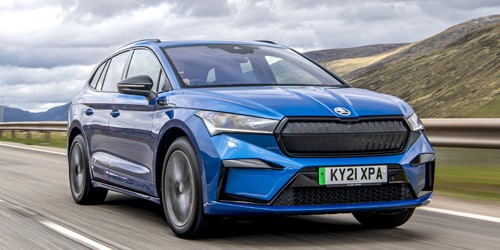
The Skoda Enyaq iV represents Skoda’s ambitious foray into the realm of electric vehicles, embodying the brand’s commitment to innovation, versatility, and sustainability. As Skoda’s first purpose-built electric SUV, the Enyaq iV showcases a harmonious blend of forward-thinking design, advanced electric propulsion, and practical functionality. With its striking exterior, spacious interior, and electric drivetrain engineered for efficiency and performance, the Enyaq iV promises a compelling and eco-conscious driving experience. Positioned as a pivotal addition to Skoda’s lineup, this all-electric SUV is poised to set new benchmarks in the electric vehicle market, delivering a combination of style, functionality, and emission-free driving in line with Skoda’s tradition of value and reliability.
Expected Price– ₹60 Lakhs
Launch Date– March 2024
Range– 513 km
Top Speed– 160 km/h
12. Tesla Model S
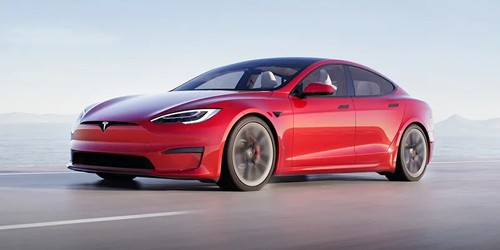
The Tesla Model S stands as a pioneering force in the electric vehicle revolution, representing Tesla’s groundbreaking innovation and unwavering dedication to sustainable transportation. Launched as one of the early trailblazers in the premium electric sedan segment, the Model S showcases Tesla’s commitment to performance, range, and cutting-edge technology. With its sleek design, unparalleled electric range, and futuristic features like Autopilot, the Model S redefines what’s possible in an electric vehicle, offering an exhilarating driving experience paired with zero-emission travel. Tesla’s relentless pursuit of advancing electric mobility is epitomized by the Model S, setting the bar high for luxury electric sedans and continually pushing the boundaries of automotive innovation.
Expected Price– ₹ 1.50 Cr
Launch Date– Late 2024
Range: 651 km
Top Speed: 322 km/h
13. Audi Q6 e-tron
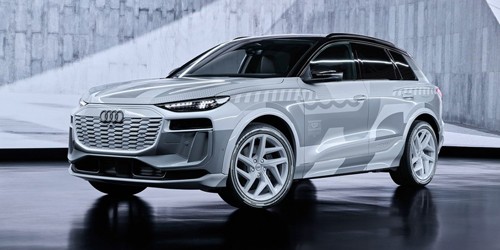
The Audi Q6 e-tron emerges as a visionary manifestation of Audi’s commitment to electric mobility, embodying the brand’s renowned luxury and innovation in an all-electric SUV. Blending Audi’s sophisticated design language with cutting-edge electric technology, the Q6 e-tron stands as an emblem of Audi’s electrification strategy. With its captivating exterior, advanced electric drivetrain, and dedication to emission-free driving, this electric SUV promises a harmonious blend of performance, versatility, and sustainability. Poised to redefine Audi’s presence in the electric vehicle arena, the Q6 e-tron exemplifies Audi’s pursuit of delivering a premium, high-performance electric vehicle that elevates the driving experience while embracing a greener future.
Expected Price– ₹ 54.08 Lakhs
Launch Date– Early 2024
Range– 600 Km
Top Speed- 125 km/h
14. Ford Mustang Mach E
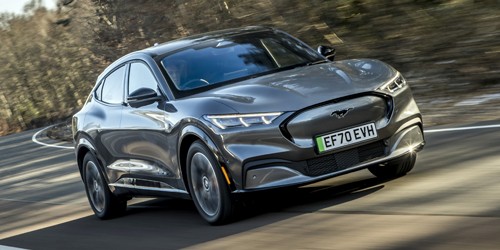
The Ford Mustang Mach-E represents a transformative leap into the world of electric vehicles while carrying the iconic Mustang legacy into the future. Departing from tradition, this all-electric SUV embodies Ford’s commitment to innovation, blending the revered Mustang’s heritage of performance with cutting-edge electric technology. With its sleek design, robust electric powertrain, and advanced features, the Mustang Mach-E promises a thrilling and eco-conscious driving experience. Offering a blend of performance, style, and sustainability, this electric SUV not only pays homage to the Mustang’s legacy but also propels Ford into a new era of electrification, catering to drivers seeking exhilarating performance coupled with environmentally friendly mobility.
Expected Price- ₹ 70 Lakhs
Launch Date– February 2024
Range- 340-483 km
Top Speed- 200 km/h
Read also: List of Top 8 Hybrid Electric Cars in India 2023
15. Maruti eVX

Maruti Suzuki’s venture into electric mobility brings forth a promising chapter in India’s automotive landscape with its highly anticipated electric vehicles (EVs). Pioneering the transition towards eco-friendly transportation, Maruti eVX represents a culmination of the brand’s legacy of reliability and innovation, now fused with sustainable technology. Poised to redefine urban commuting, these electric offerings are expected to embody Maruti’s commitment to affordability, efficiency, and practicality, catering to the growing demand for emission-free driving solutions in the Indian market. As Maruti Suzuki steps into the electric vehicle realm, the company aims to deliver accessible, reliable, and environmentally conscious EVs, potentially revolutionizing the Indian automotive industry while catering to the evolving needs of eco-conscious consumers.
Expected Price– ₹22 Lakh
Launch Date– April 2024
Range- 550 km
Top Speed- 160 km/h
16. Volvo EX90
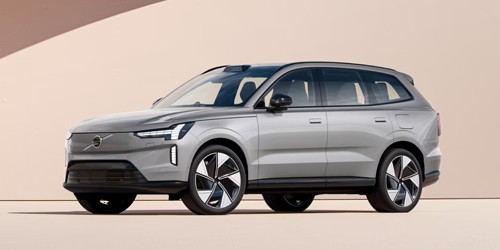
Volvo’s foray into electric vehicles represents a bold stride toward sustainable and eco-conscious mobility. Renowned for its commitment to safety, innovation, and design, Volvo has transitioned its acclaimed lineup into the realm of electrification. With a model like the EX90 Volvo is all set to redefine luxury and efficiency, offering all-electric or plug-in hybrid options that uphold the brand’s ethos of safety and quality while embracing the future of emission-free driving. Volvo’s electric cars showcase advanced technology, impressive range capabilities, and a dedication to reducing their environmental impact, setting a new standard for premium electric vehicles that merge style, performance, and environmental responsibility
Expected Price- ₹ 1.50 Cr
Launch Date- March 2024
Range- 450 km
Top Speed- 180 km/h
17. Toyota bZ4X
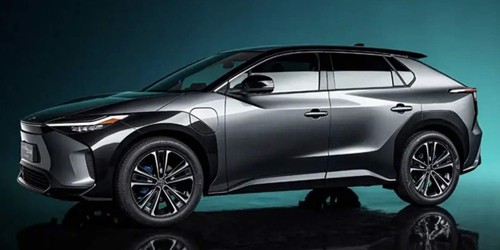
The Toyota bZ4X stands as a pioneering leap into the world of electric mobility for Toyota, encapsulating the brand’s commitment to a sustainable automotive future. As Toyota’s first all-electric SUV, the bZ4X embodies a harmonious balance of cutting-edge technology, practicality, and eco-conscious design. With its sleek and modern exterior, advanced electric drivetrain, and a focus on zero-emission driving, this electric SUV promises to deliver a versatile and efficient driving experience. Poised to redefine Toyota’s presence in the electric vehicle market, the bZ4X represents the brand’s proactive stance toward providing drivers with an environmentally friendly yet dynamic and reliable vehicle option
Expected Price- ₹ 70 Lakhs
Launch Date- February 2024
Range- 511 km
Top Speed- 160 km/h
18. BMW i5eDrive40
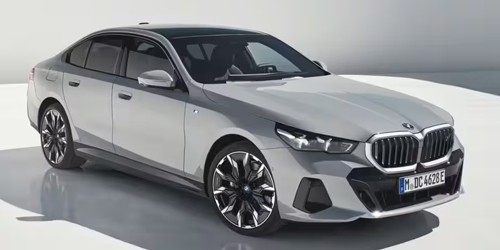
BMW’s venture into electric mobility represents a fusion of the brand’s hallmark performance and cutting-edge sustainability. The BMW electric car i5eDrive40 epitomizes the brand’s commitment to redefining the driving experience. Distinctive for their sleek design, advanced technology, and efficient electric drivetrains, BMW’s electric cars offer a compelling blend of luxury, innovation, and eco-consciousness. This upcoming electric car showcases BMW’s dedication to crafting electric vehicles that deliver both thrilling driving dynamics and a greener alternative for the future of mobility. BMW’s foray into electric cars underscores a commitment to a sustainable automotive future, elevating the standards of performance and design in the realm of electric mobility.
Expected Price– ₹ 55.57 Lakhs
Launch Date– Spring 2024
Range- 434 – 474 km
Top Speed- 193 km/h
19. VW iD4

The Volkswagen ID.4 stands as a definitive shift toward sustainable and versatile electric mobility within Volkswagen’s illustrious lineup. As VW’s first all-electric SUV, the ID.4 embodies the brand’s commitment to innovation, offering a blend of eco-conscious engineering, striking design, and practicality. With its sleek and aerodynamic profile, cutting-edge technology, and efficient electric powertrain, the ID.4 delivers an engaging driving experience while championing emissions-free travel. Set to redefine expectations in the electric SUV realm, the Volkswagen ID.4 signifies a pivotal step forward in Volkswagen’s pursuit of creating an accessible, eco-friendly, and enjoyable driving experience for the modern world.
Expected Price– ₹ 55 Lakhs
Launch Date– Mid 2024
Range- 336-443 km
Top Speed- 160 km/h
20. Citroen eC3 Aircross
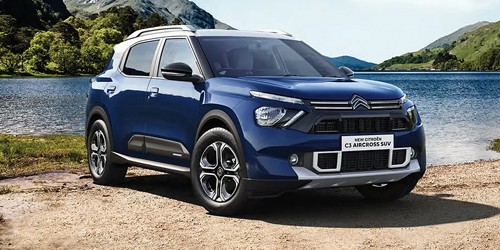
The Citroën eC3 Aircross embodies a harmonious fusion of Citroën’s distinct design philosophy and the electrifying advancements in sustainable mobility. As Citroën ventures into the realm of electric SUVs, the eC3 Aircross brings forth a refreshing blend of style, versatility, and eco-consciousness. With its charming exterior, versatile interior space, and commitment to emission-free driving, this electric variant encapsulates the essence of urban practicality while championing a greener future. The eC3 Aircross is poised to redefine the compact electric SUV segment, offering drivers an inviting combination of Citroën’s iconic flair with the benefits of electric mobility, promising a delightful driving experience tailored for modern urban landscapes
Expected Price– ₹15 – 17 Lakhs
Launch Date- Late 2024
Range- 320 km
Top Speed- 107 km/h
21. Mercedes-Maybach EQS SUV
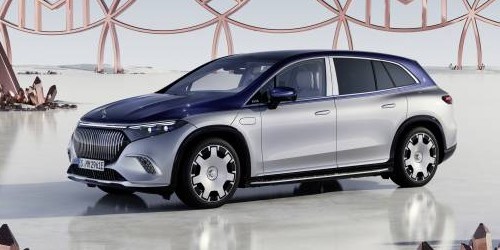
The Mercedes-Maybach EQS SUV epitomizes the pinnacle of luxury and electric innovation, marrying the opulence of the Maybach brand with the cutting-edge technology of electric mobility. As the debut of the Maybach luxury line into the electric SUV segment, the EQS SUV elevates the standards of luxury and sustainability. This flagship vehicle embodies the fusion of exquisite craftsmanship, state-of-the-art technology, and eco-conscious engineering. With its striking presence, sumptuous interior, and the promise of emission-free travel, the Mercedes-Maybach EQS SUV redefines what it means to experience opulence while embracing a sustainable future. This vehicle stands as a testament to Mercedes-Maybach’s unwavering commitment to unparalleled luxury merged seamlessly with the advancements of electric mobility.
Expected Price- ₹ 4 Cr
Launch Date- Late 2024
Range- 434 km
Top Speed- 210 km/h
22. Mercedes EQG
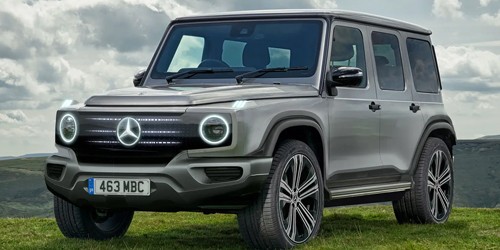
The Mercedes EQG represents an electrifying evolution of the legendary G-Class, infusing the iconic off-roader with sustainable electric power. As Mercedes-Benz’s foray into the realm of electric SUVs, the EQG maintains the robust and rugged persona of its predecessor while embracing an emissions-free future. With its instantly recognizable boxy silhouette and formidable capabilities, the EQG marks a pivotal moment where luxury meets sustainability in the world of off-road vehicles. Sporting an electric powertrain designed to tackle rough terrains while emitting zero emissions, the EQG promises an environmentally conscious adventure without compromising the G-Class’s renowned off-road prowess and opulent comfort. The Mercedes EQG stands as a symbol of Mercedes-Benz’s commitment to innovation, combining the heritage of the G-Class with the promise of a greener and electrifying future.
Expected Price- ₹ 3 Cr
Launch Date- Late 2024
Range- 482* km
Top Speed- 193 km/h
23. Mini Cooper SE

The Mini Cooper SE heralds an electrifying evolution of the iconic Mini brand, infusing the beloved compact car with cutting-edge electric power. Representing Mini’s foray into the electric vehicle landscape, the Cooper SE seamlessly blends the brand’s historic charm with eco-conscious innovation. With a zippy electric motor under its retro-styled hood, the Cooper SE delivers an engaging driving experience, staying true to the Mini ethos of nimble handling and spirited performance. Boasting a distinctive design and a compact yet efficient electric drivetrain, this electric Mini promises emission-free city driving while maintaining the iconic character and fun-to-drive nature that has endeared Minis to drivers worldwide. The Mini Cooper SE is a vibrant testament to Mini’s commitment to electric mobility without compromising on the timeless appeal that has made the brand an automotive icon
Expected Price– ₹ 58 Lakhs
Launch Date- Early 2024
Range- 270 km
Top Speed- 150 km/h
24. Porsche Macan EV

The Porsche Macan EV marks a bold leap into the electrified future for the esteemed automaker, blending the signature performance of Porsche with the eco-conscious advancements of electric mobility. This all-electric iteration of the popular Macan SUV stands as a testament to Porsche’s commitment to innovation and cutting-edge technology. Anticipated to redefine the segment, the Macan EV promises to deliver an exhilarating driving experience powered by electric motors, showcasing Porsche’s renowned performance while embracing sustainability. With its sleek design, advanced electric drivetrain, and the promise of a luxurious yet eco-friendly driving experience, the Porsche Macan EV signals a thrilling chapter in Porsche’s legendary lineage.
Expected Price– ₹ 1.8 Cr
Launch Date- Early 2024
Range- 498 km
Top Speed- 249 km/h
25. Rolls-Royce Spectre
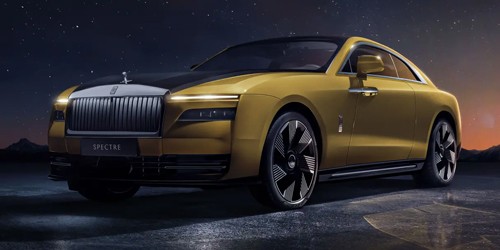
The Rolls-Royce Spectre, an emblem of luxury and opulence, heralds a new era for the prestigious automaker. As the first fully electric model to grace the Rolls-Royce lineup, the Spectre transcends the boundaries of traditional luxury vehicles, melding exquisite craftsmanship with eco-conscious engineering. Anticipated to redefine automotive excellence, this electrifying masterpiece is poised to deliver not only unparalleled comfort and sophistication but also a seamless and powerful electric driving experience. With its distinctive design, state-of-the-art technology, and unwavering commitment to luxury, the Rolls-Royce Spectre embodies a bold step toward the future of automotive innovation and sustainable luxury
Expected Price– ₹ 9 Cr
Launch Date- Late 2024
Range- 465 km
Top Speed- 250 km/h
26. Kia EV9

The Kia EV9 stands at the forefront of Kia’s groundbreaking advancements in electric vehicle technology, representing a paradigm shift in sustainable mobility. This forthcoming electric SUV embodies a harmonious blend of futuristic design, cutting-edge innovation, and eco-conscious performance. Anticipated to redefine standards in the electric vehicle segment, the EV9 promises an impressive range, advanced connectivity features, and a luxurious driving experience, all while maintaining a steadfast commitment to environmental sustainability. With its sleek aesthetics and technological prowess, the Kia EV9 is poised to captivate the market and pave the way for a new era of electrifying and eco-friendly driving experiences
Expected Price- ₹ 90 Lakhs- ₹ 1.02 Cr
Launch Date- June 2024
Range- 489 km
Top Speed- 190 km/h
Conclusion
As India gears up for a paradigm shift in its automotive landscape, the introduction of these upcoming electric cars in 2024 reflects a collective commitment towards sustainable and eco-friendly mobility. From performance-driven models to affordable options, the choices in the electric vehicle segment are expanding, marking a pivotal moment in India’s journey toward a greener and cleaner future. Stay tuned for these exciting additions, as they promise to shape the narrative of electric mobility in the country.
Read also: The Rise in Demand and Popularity of EV Cars in India


